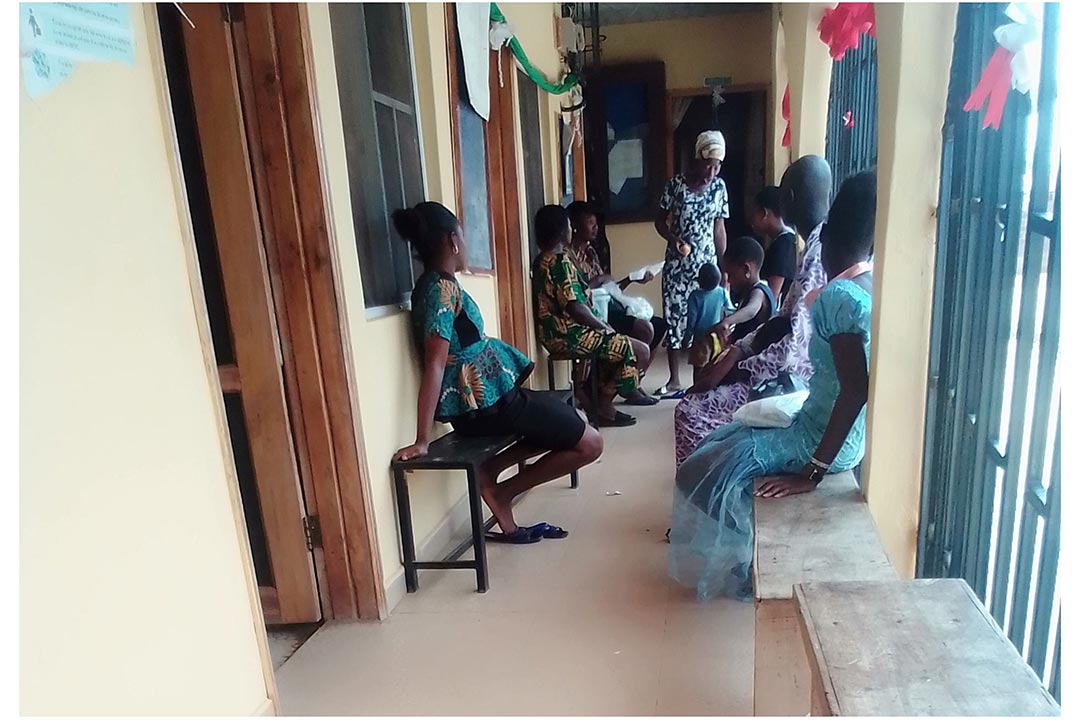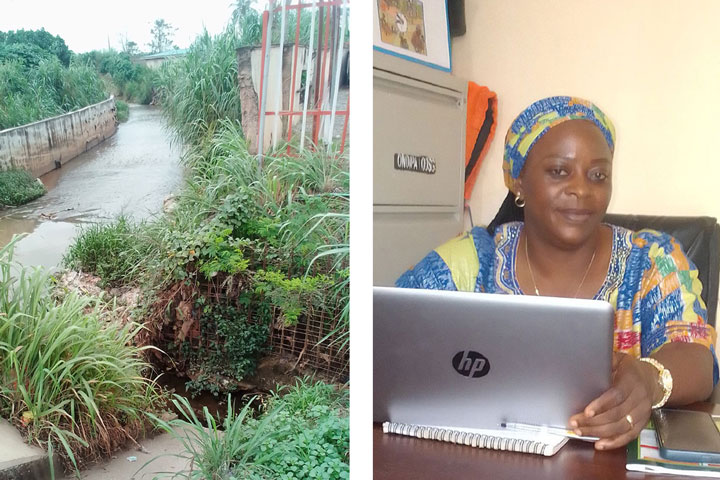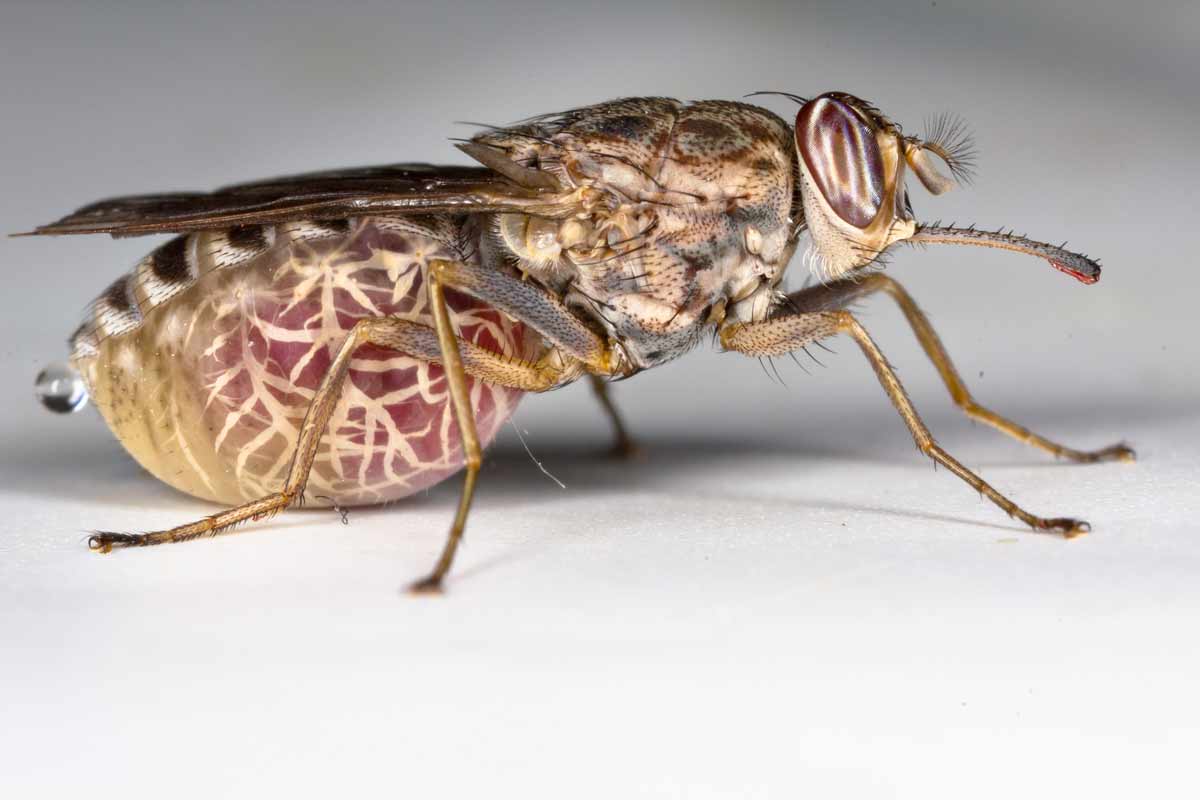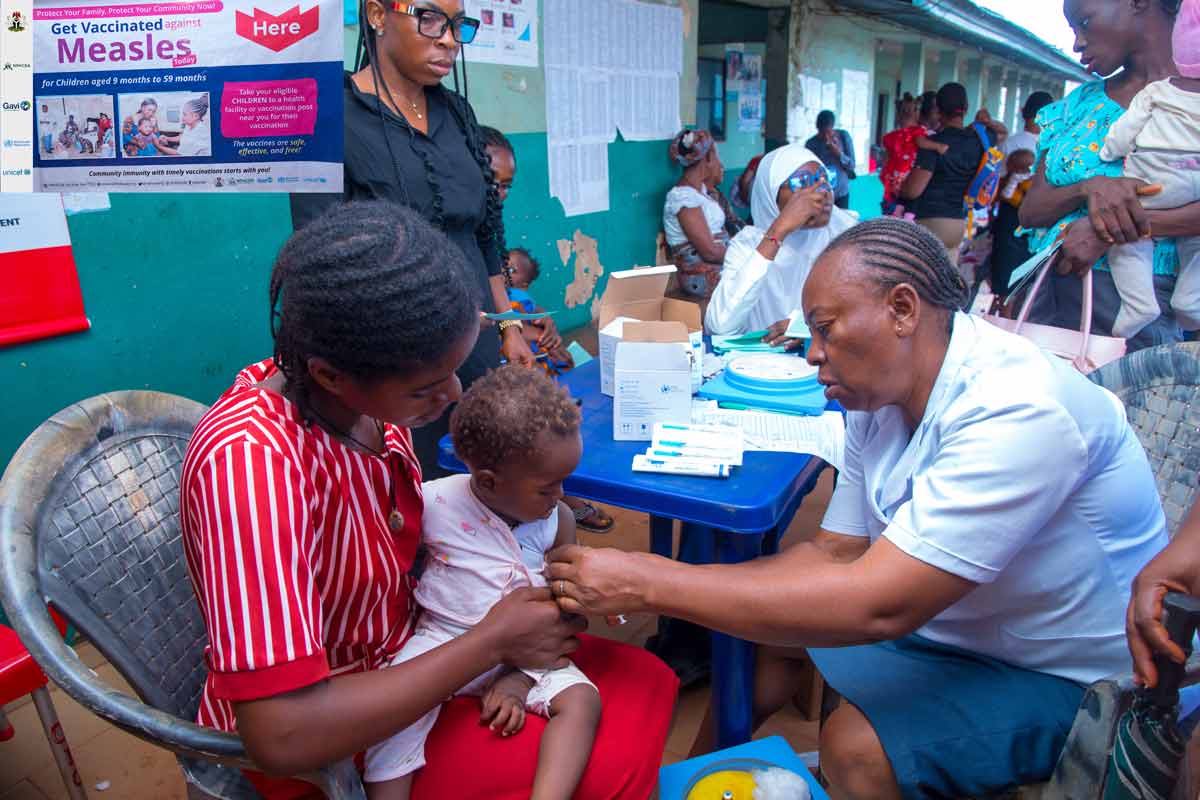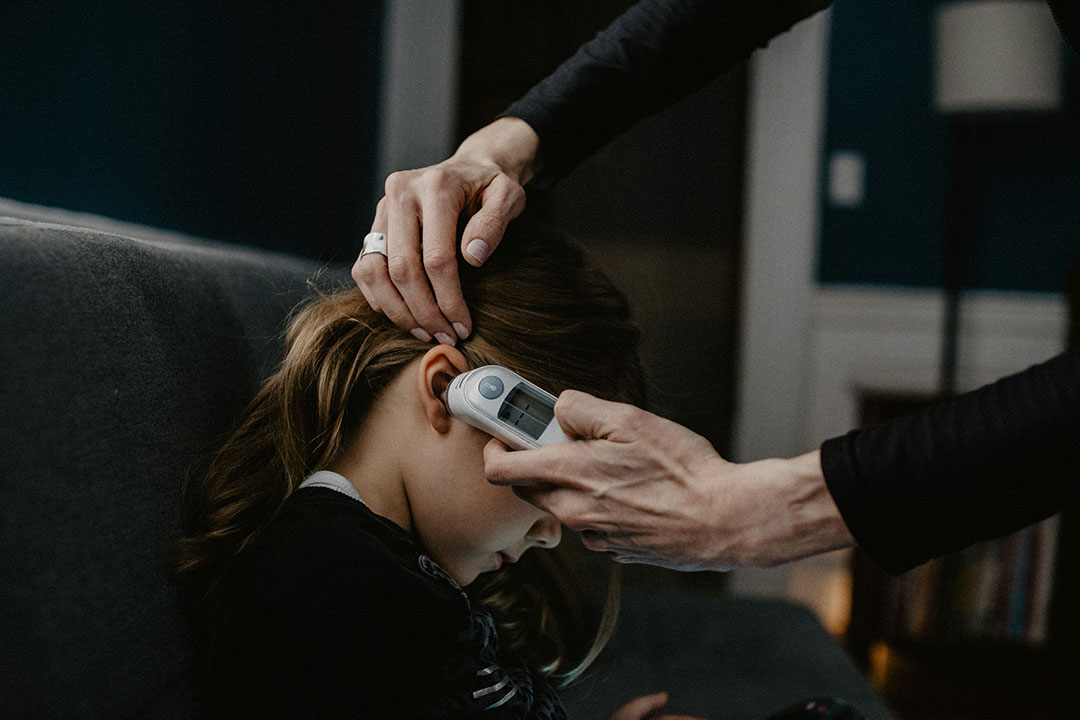“Miraculous” healthcare-on-wings reaches remote communities in Nigeria
Health leaders in Cross River State, supplied by medical drone company Zipline since February 2023, say “things have improved”.
- 11 October 2023
- 4 min read
- by Adetokunbo Abiola
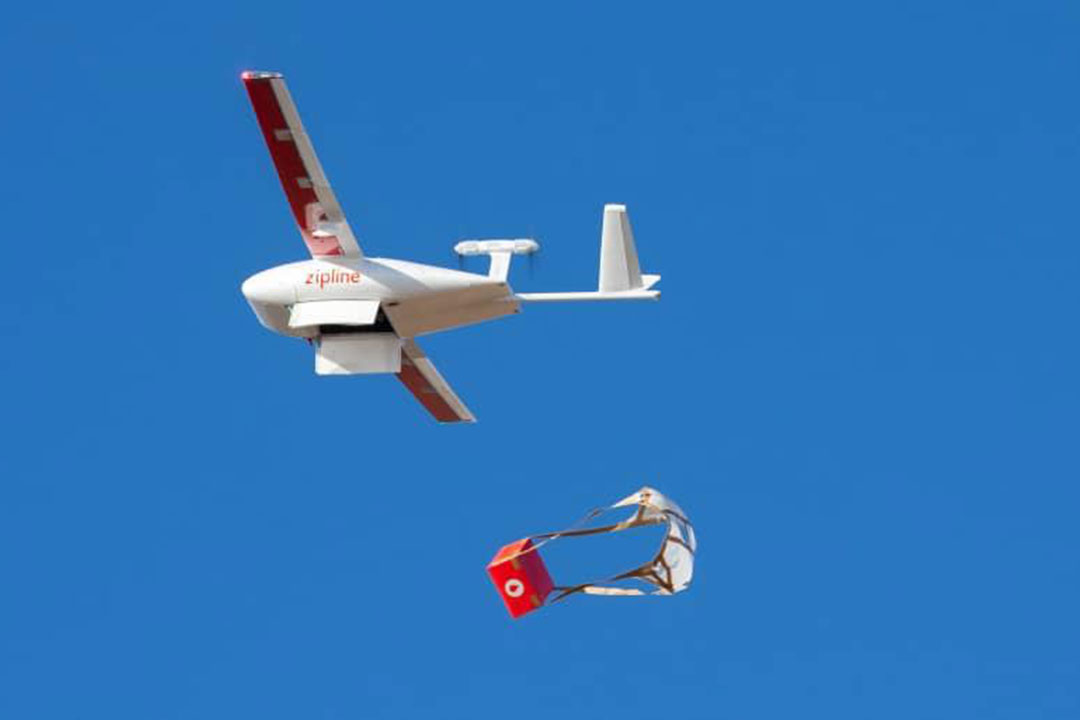
In late May, Angela Udoh's one-year-old daughter, Agnes, fell ill. Forty-year-old Udoh, a resident of Nde, a town of some 10,000 people in Ikom Local Government Area of Cross River State, watched her daughter with fear: Agnes was totally unvaccinated, and therefore vulnerable to many dangerous childhood diseases. "I didn't know what to do," Udoh told VaccinesWork on the phone.
When people know that local health facilities are reliably stocked with vaccines, early studies suggest, they are more likely to seek care there for other aspects of their health.
In the same town, three streets away, 36-year-old Patience Ekanem watched her six-month-old son, Nnimmo, with apprehension. A friend told her the reason for Nnimmo's illness was because he wasn't immunised. Ekanem felt helpless about the situation. When Nnimmo coughed, Ekanem jumped. "I was confused," she said.
In another part of the town, 22-year-old Felicia Akpan's daughter became ill, and Akpan looked on with dread. Ivara wasn't immunised, and someone told Akpan this could be dangerous to children. "The situation can make a mother run mad," she said in a phone interview.
Vulnerable millions
Nigeria's ranks of unprotected children swelled during the pandemic, as an estimated 6.2 million children went without vaccination between 2019 and 2022. Sixty-four percent of children aged between 12 and 23 months are missing out on one or more of their basic immunisations. Recent UNICEF and WHO estimates put the tally of "zero-dose" children – those who have not received so much as a single dose of the basic diphtheria, tetanus and pertussis-containing vaccine in Nigeria at 2.2 million.

Credit, Zipline
In Cross River State alone, that number likely stands at over 700,000, according to the former Director General of the Cross River State Primary Healthcare Development Agency, Dr Janet Ekpenyong.
The reasons children miss out on vaccines are diverse and complex. A lack of awareness of the importance of vaccination is one common contributor. Access hurdles represent another. Often enough, the two go together: where the health system is logistically or geographically more remote, community awareness of the value of vaccination may also suffer.
Have you read?
This year, however, a winged middle-man began bringing vaccines closer to Cross River communities – closer, that is, to Udoh, Ekanem and Akpan and their vulnerable children.
Airlink to safety
Zipline, a medical drone delivery company, has been ferrying drugs and vaccines across the state since February. Borne by drones, vaccines can reach short-stocked clinics – which are clinics that systemically lack adequate cold storage – in hard-to-reach areas in as little as 15 to 30 minutes.
Already, the partnership has improved access to critical vaccines for thousands of children in Cross River State. Since the partnership launched in February 2023, Zipline has delivered more than 100,000 doses of vaccines to 18 government areas.
"This will not only save lives and reduce illness from preventable disease, but instant delivery of vaccines could improve other aspects of public health," Hillary Owoedimo, Zipline's Head of System Integration in Cross River State, told VaccinesWork.
Evidence from Ghana, where the drone service is longer established, suggests that its impact will deepen with time. Zipline has delivered more than 11 million doses of routine and COVID-19 vaccines there, generating data to show that aerial drone delivery has reduced missed opportunities for vaccination, helped government campaigns reach more vulnerable populations and even increased trust in the public health system by reducing the duration of stock-outs by 60%. When people know that local health facilities are reliably stocked with vaccines, early studies suggest, they are more likely to seek care there for other aspects of their health.
"The partnership of the Cross River State Government with Zipline has addressed the previous vaccine shortages caused by limited storage capabilities. As a result, inaccessible communities now receive vaccines and essential medical supplies," adds Owoedimo.
"Like a Miracle"
Udoh saw a drone as it dropped vaccines in her community, a white plane-like object moving at the speed of 110km/h. "It was like a miracle," Udoh told VaccinesWork.
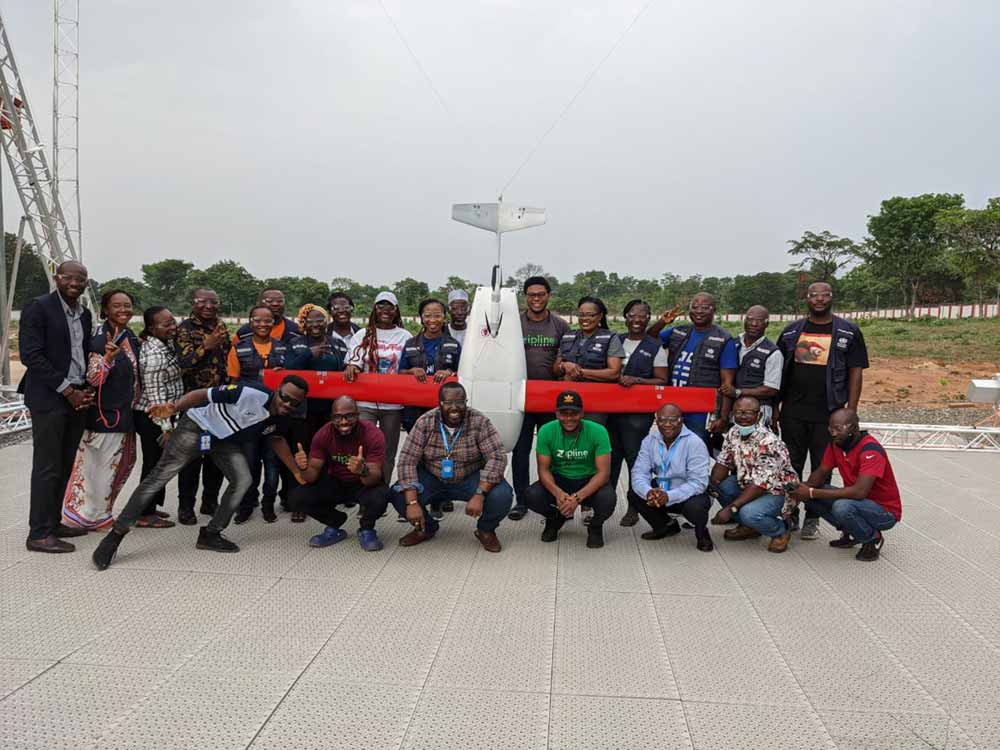
Credit, Zipline
The same thing happened to Ekanem, who saw the drone as it flew across the sky in one of the 7,000 flights the drones have undertaken.
"This is a chance to scale up the entire universal health delivery project of the state."
– Deaconess Abasi Offiong, Director General of Cross River State Primary Health Care Development Agency
Akpan did not see the drone that brought them, but she did see the vaccines at the clinic.
"This is a chance to scale up the entire universal health delivery project of the state," Deaconess Abasi Offiong, the Director General of Cross River State Primary Health Care Development Agency, told VaccinesWork."It has been a worthwhile gesture. Their work has been satisfactory. Things have improved from a bad situation."
Esther Aju , who worked at the Ogoja Maternal Child Hospital as the routine immunisation officer, told This Day newspaper: "Immunisation has become more convenient and accessible since Zipline began servicing the facility."
Udoh, Akpan, and Ekanem agree with her, having had the chance to vaccinate their zero-dose children through the vaccines the drones delivered
